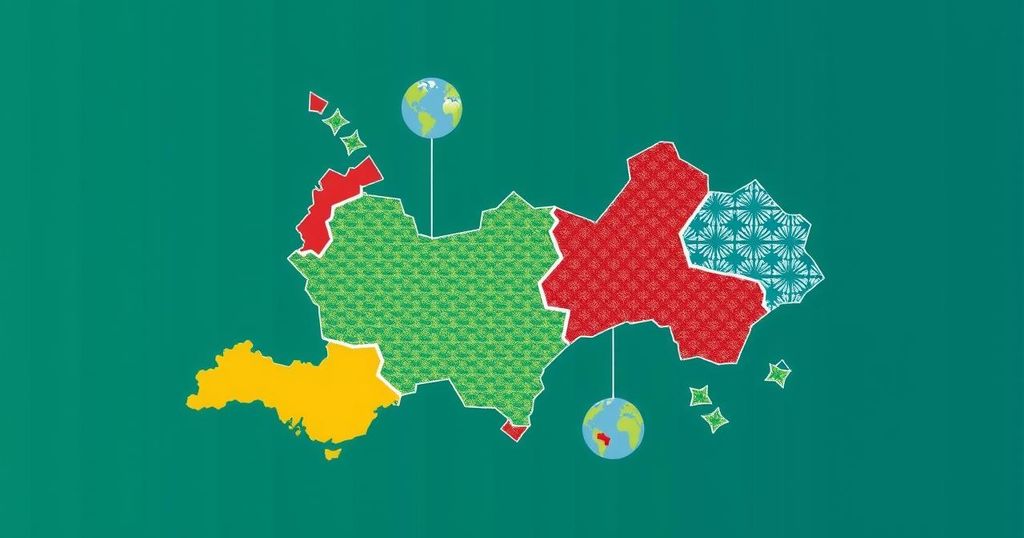Climate change
ASIA, AZERBAIJAN, BOLIVIA, CHAN, CLIMATE CHANGE, CLIMATE JUSTICE, CLIMATE RESILIENCE, CUBA, ENVIRONMENTAL POLICY, EU, GLOBAL NORTH, GLOBAL SOUTH, NORTH AMERICA, PARIS AGREEMENT, PEDRO LUIS PEDROSO, SOUTH, SOUTH AMERICA, SUSTAINABLE DEVELOPMENT, VOA, WO, WOPKE HOEKSTRA
Marcus Li
0 Comments
COP29: Developing Nations Express Outrage over Inadequate Climate Funding
The COP29 summit culminated in a $300 billion funding agreement deemed insufficient by developing nations, falling far short of the needed $1.3 trillion to address climate change. While the deal signifies an increase from previous commitments, it has sparked outrage among vulnerable nations, which view the funding as inadequate amid ongoing climate disasters. The reliance on private funding and loans rather than grants raises further concerns regarding debt accumulation for poorer countries.
The conclusion of the COP29 climate summit in Azerbaijan has ignited considerable anger among developing nations. The agreement to establish a $300 billion annual funding target, set to aid developing countries in addressing climate risks, has been widely criticized as grossly inadequate. According to the agreement reached, this funding is significantly lower than the estimated $1.3 trillion needed each year to combat climate change effectively. The contributions from Global North countries are intended to last until 2035 but are seen as meager by representatives from affected countries who have denounced the deal as insufficient and insulting. During the negotiations, concerns arose regarding the reliance on private funding that may lead to an increase in debt for these nations, with calls for support to be structured as grants rather than loans.
The discontent surrounding COP29 was palpable, with negotiators from various Global South nations expressing their frustrations, highlighting an inadequate response from wealthier nations. Emerging leaders from affected regions voiced their dissatisfaction, with key negotiators labeling the funding target as a betrayal that undermines global climate initiatives. While some Western representatives viewed the deal as a step forward, many believe it falls short of international responsibility towards climate justice. Notably, adaptation projects such as advanced disaster warning systems, reforestation, and improving water security are among the urgent needs that remain underfunded despite commitments from developed nations.
Funding pledges from developed countries, including significant commitments from Germany and the United States, have not fully materialized, thus raising questions about accountability and transparency regarding climate financing. As experts and advocates prepare for COP30 in Brazil, there is a persistent concern that the global carbon trading system needs to be articulated more clearly. The fundamental hope is to achieve a revised roadmap for reaching the financial targets necessary to assist developing countries in effectively mitigating the consequences of climate change. The processes leading up to this next meeting will involve scrutinizing national climate plans, which many predict may not meet upcoming deadlines.
The COP29 climate summit was essential in framing future global climate finance mechanisms, particularly focused on supporting developing countries disproportionately affected by climate change. The summit aimed to secure funding commitments to assist these vulnerable countries address climate change. The deal struck by Global North nations to pledge $300 billion per year until 2035 represents an incremental increase from previous commitments but remains significantly low compared to what various experts and studies suggest is necessary to mitigate climate impacts effectively. This discrepancy has led to a renewed urgency for better mechanisms and more reliable funding, especially considering ongoing climate disasters and the need for robust climate adaptation strategies across the Global South.
In conclusion, COP29 has highlighted the stark division between the pledges made by developed nations and the urgent needs of developing countries facing climate challenges. The $300 billion financial commitment, while an increase from previous years, falls short of the needed $1.3 trillion annual support, leading to widespread criticism and claims of betrayal from poorer nations. As the world moves towards COP30, a stronger emphasis on accountability and transparency is critical to ensuring that climate finance translates into concrete actions that enhance resilience in vulnerable communities to counteract the worsening effects of climate change.
Original Source: www.voanews.com




Post Comment